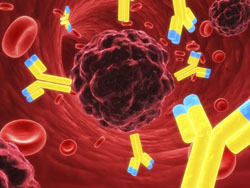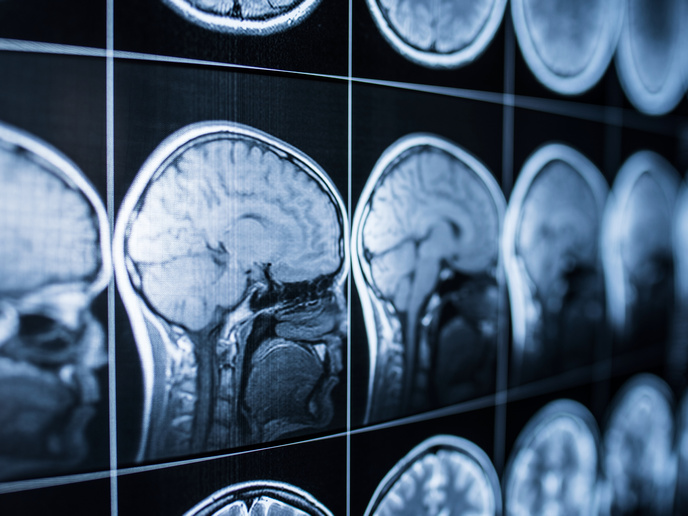Antibodies against cancer
Cancer therapy remains a clinical challenge since generalised treatments such as radiotherapy and chemotherapy pose serious complications for normal organs. As a result, effective regimens are urgently required that specifically target cancer cells, thereby minimising undesirable side-effects. The scientific objective of the EU-funded 'European consortium for anticancer antibody development' (EUCAAD) project was to identify novel cancer-related targets for raising therapeutic antibodies. The main focus was on tumour- and angiogenesis-associated antigens. Targeting the vessel compartment of growing tumours has been recognised as a potential approach for inhibiting cancer. At the same time, the specificity of antibodies could be exploited to target antigens present on the surface of cancer cells or to bind and deplete growth factors required for tumour maintenance and growth. EUCAAD partners combined these two approaches to generate a vaccine against the angiomotin (AMOT) protein, which is selectively expressed on endothelial cells of angiogenic tissues. When used in a pre-clinical mouse model, inhibition of neovascularisation and tumour growth was observed and attributed to natural killer cell-mediated cell cytotoxicity. Antibodies against other AMOT partners such as AMOTL1 and AMOTL2 were also proposed as potential avenues for therapeutic exploitation. The consortium also worked on the development of various antibodies to induce chronic lymphocytic leukemia (CLL) based on a molecule called ROR1. Targeting of ROR1, which is implicated in Wnt signalling, was shown to induce apoptosis of CLL cells. Overall, the EUCAAD project successfully integrated basic science with translational research to identify angiogenic- and cancer-associated targets. The project deliverables have the potential to lead to the development of novel anti-cancer drugs and vaccines, hopefully with promising therapeutic outcomes.







